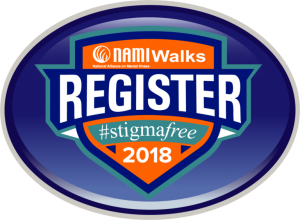Large Firm Service. Small Firm Attention.

SHARE
May is Mental Health Awareness Month: Take Steps to Work for More Understanding to Save Lives
Published May 1, 2018
By Marion M. Walsh, Esq., Littman Krooks LLP
Imagine you have an illness that is invisible. You look healthy and are functioning on the surface but are in pain all the time, both emotionally and physically. The illness saps all your strength. You cannot concentrate. Many days, you cannot get out of bed. You often cannot sleep or sleep all the time. You feel both numb and extra sensitized. The illness can be serious and potentially life threatening. Yet, many do not believe that you are really ill. You have had people tell you to “snap out of it” and that you can overcome it. Some imply you are being lazy. Others believe you are faking or that the illness is due to lack of character, discipline or determination. The illness also makes it impossible for you to seek help when you need it most. It can cause you to alienate the people close to you. There is no real cure, just management. Doctors can treat it, but many good doctors do not take insurance. There is medication available, but it can take some time to work and it may stop working. There is therapy but good therapists are hard to find and the strategies needed may change. Even after you feel better, the illness then comes back. You have lost years of your life. You are worried that this is just you and do not know if life is worth living.
This is what depression can look like. It can affect anyone but some are more prone to major or recurrent depression. The World Health Organization has recognized depression as the leading cause of disability worldwide. Despite its prevalence, there is still stigma, misunderstanding and a lack of help. Depression and all mental illnesses deserve greater attention and support in society and less stigma.

May is Mental Health Awareness Month. Young adults and teens are particularly at risk for mental health issues—including depression, anxiety, and other issues, which can lead to devastating consequences. 1 in 5 individuals will have a mental health condition at some point in their lives. Suicide represents the second leading cause of death for young people 13-24, according to recent statistics from the Center for Disease Control.
Despite the high frequency and the need for help, too many myths and unspoken stigmas plague families who have loved ones struggling with mental health issues. NAMI Westchester offers peer-directed programs in education and support at no-cost. You can join our firm at the NAMI Walks fundraiser on May 19, 2018. NAMI’s programs support families, individuals living with mental illness, and mental health and school professionals. Help dispel myths, cure stigma and educate the public. A mental health condition should have no more stigma than a physical illness. Individuals with mental health conditions are no more likely to be violent than a person in the general population.
If a loved one has a mental health issue, it is important to understand how to seek support and, if this is your child, to understand the legal obligations of the child’s school district or college. For example, many students in public schools with mental health conditions will qualify for tailored special education supports or therapeutic schools. Too many view mental health issues as “private issues” but without support and treatment, conditions may not improve. An experienced attorney and advocate can help you work to get support for your loved one’s needs or your child’s school in complex situations to ensure support.
Learn more about our special needs planning and special education advocacy services at www.littmankrooks.com or www.specialneedsnewyork.com.
Was this article of interest to you? If so, please LIKE our Facebook Page by clicking here or sign up for our monthly newsletter.
Categories
Recent Posts
Explore In-Depth

Corporate & Securities

Elder Law & Estate Planning

Special Needs Planning

Special Education Advocacy


















